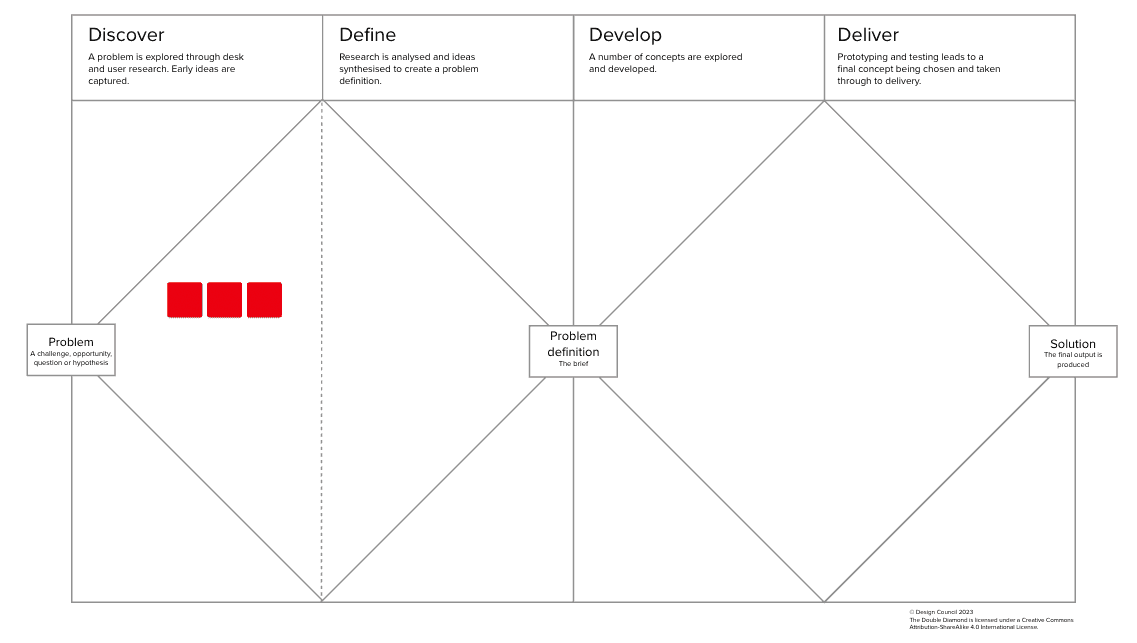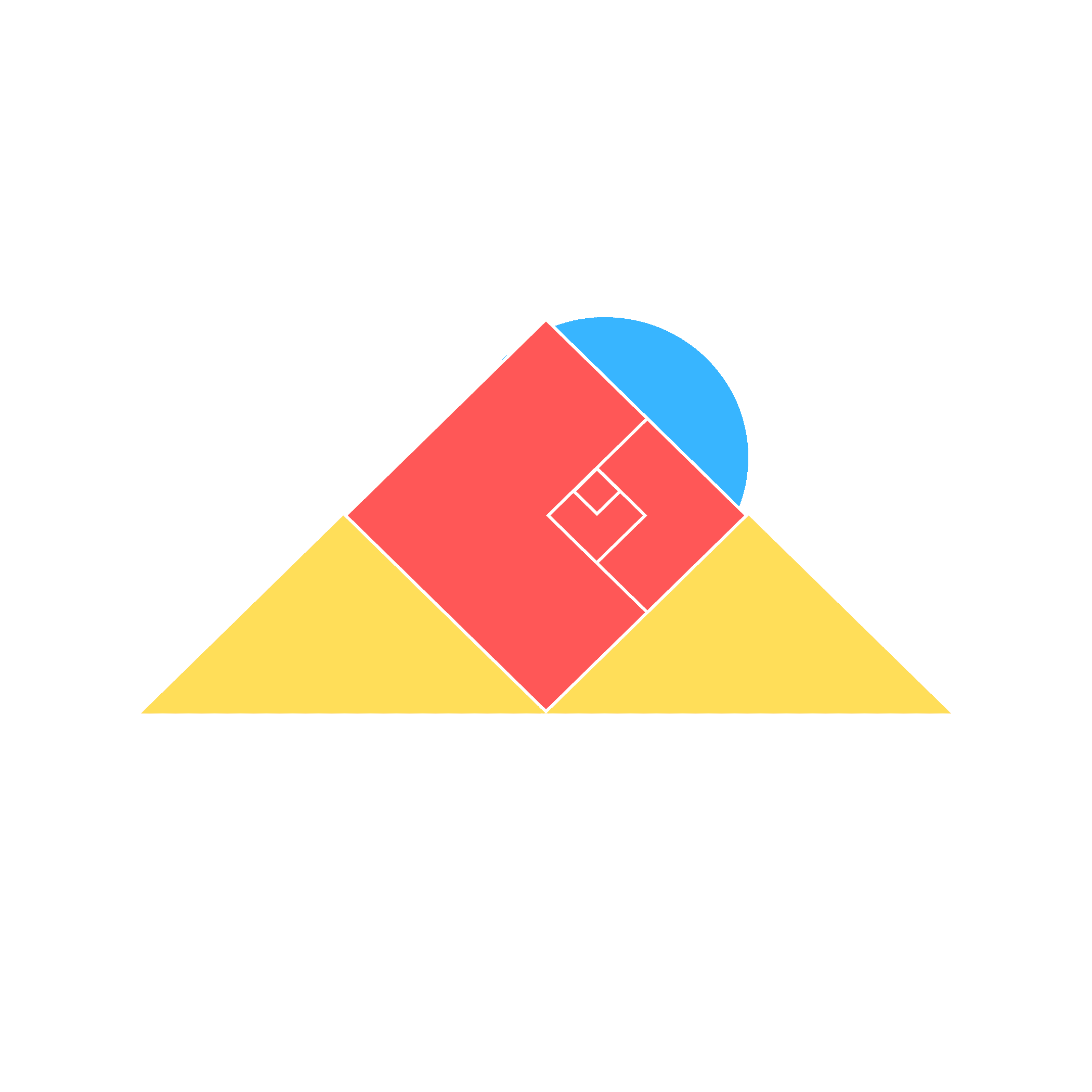Notion tips and tricks
Guide to Notion for business
Ready to enhance your product management prowess? Effective product management is crucial for the success of any business. In the realm of digital tools, Notion offers product managers several advantages over more rigid project management platforms like Jira. With a suite of customizable features, Notion saves time and money, making it easier to kickstart your next product-building venture. From the initial spark of ideation to the thrill of launch, Notion serves as a transformative tool that co-pilots your journey.
Simple Steps of the Product Management Life Cycle
Ever heard of the Double Diamond? It’s a widely accepted visual framework that maps out the product process. Think of it as a cheat sheet for navigating any innovation project, regardless of the methods or tools you prefer. This mental model is based on the following stages, adjusted to fit a Notion or no-code building approach:

Discover
In the Discover phase, you play detective, digging deep into the root of the problem. This stage involves engaging with stakeholders to understand their needs, researching existing solutions, and collecting information to build a knowledge base. In Notion, you can create interviews, threads, insights, or benchmark databases to properly frame the problem. A useful hack during the research phase is to install the Notion Web Clipper, allowing you to save relevant websites with just a click.
Define
With all the insights gathered, it's time to shift your perspective and start converging ideas to reduce complexity. This phase is like putting together a puzzle using the pieces you’ve collected to define your solution approach. In Notion, rich text pages are ideal for consolidating information from unstructured sources like Figma or notes. Exploring templates such as Product Requirement Documents (PRDs) can also be beneficial in this stage.
Develop
Now comes the fun part. The Develop phase is where you flesh out ideas to solve the problem you’ve defined, creating action plans for prototyping and testing. In the context of Notion and no-code tools, this phase is about getting inspired, thinking creatively, and collaborating with stakeholders to ensure everything aligns with user needs. Start with Notion’s native Projects, Tasks, and Sprints pack to begin your rollout, and customize your workflow as you go.
Deliver
Finally, the Deliver phase involves wrapping up the project and packaging the generated knowledge into a tangible product, typically delivered via an official channel, such as a duplicate URL. It’s crucial to onboard new users to the system and train them on the basics to get started. If data migration from an existing workspace is necessary, treat it as a sub-phase, ensuring business continuity, minimal migration time, and no loss of relevant data.
Notion Tips to Hack Your Product Management Skills
Notion is more than just a project management tool—it’s a platform that can transform your business operations, especially when it comes to knowledge generation and retention. This is particularly useful for agencies, no-code studios, and professional services, where impact is measured in day-to-day operations. Below are some activities you can boost and outperform when Notion is fully integrated into your product management processes.
Centralize Key Product Management Activities
Track Initiatives from Insight to Production: Keep tabs on initiatives, epics, user stories, and any detail—all in a single app.
Manage Both High-Level and Detailed Views: Oversee your roadmap with strategic timelines while also drilling down into specific tasks or bugs in a sprint.
Control Recurrent Tasks and Meetings: Keep track of transactional or recurrent tasks, such as stakeholder meetings and daily or weekly team updates.
Streamline Information Across Users and Platforms
Enable Asynchronous Collaboration: Share internal and public content with the team and stakeholders, gaining insights via comments and mentions.
Use Relational Data for Contextual Understanding: Provide full context for features and past work, facilitating smoother onboarding for new team members.
Automate Workflows with Integrations: Connect Notion with tools like Slack or GitHub to automate notifications and other workflows during different feature stages.
Don’t Start from Zero—Nor Alone
Migrate from Other Platforms: If you're using platforms like Jira, Trello, Monday, or Spreadsheets, explore Notion’s integration and import features to migrate historical work seamlessly.
Leverage Existing Templates: Explore templates created by other product managers, and reach out to gather feedback and learn from their experiences.
Involve the Product Team in Change Management: Treat the adoption of Notion as a change management activity, allocating necessary resources and identifying champions to ensure a successful transformation.
In conclusion, this post highlights the transformative potential of Notion for product management. Not only does it move along with you during the entire product life-cycle from discovery to delivery, but it also integrate with other platforms used during the process enabling cross-information. With Notion, product managers can enhance their workflow, improve team communication with the team and ultimately, foster successful product development to users.
Get Product Management Super-powers
If you are a product manager looking for new ways and tools to upgrade your product organization, visit product.belowtion.com or get our product builder suite.


